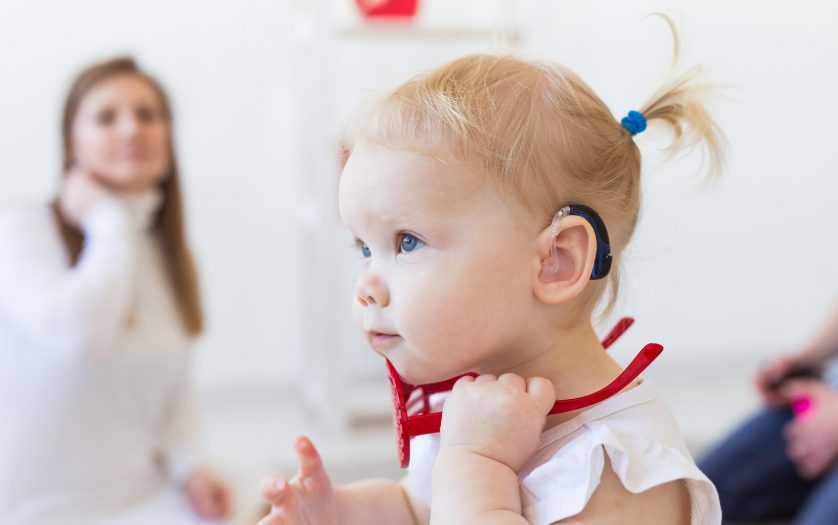
Thirteen-year-old Seán McManus Allen, who is deafblind, loves to repeatedly list populations and capitals of countries around the world.
His obsession with such facts comes with behaviour disorders associated with the Charge syndrome he has, but Séan’s hearing disability is what prevents accurate assessment and services. That’s what happens, said Chime, the national charity for deafness and hearing loss, when disability services are all geared towards a hearing world.
About 40% of the approximately 100 children born with hearing loss in Ireland every year have other disabilities and these are not being diagnosed, said Chime’s director of specialist services, David Buxonat.
“The biggest problem, without a doubt, is the assessments,” explained Brendan Lennon, head of advocacy with Chime (formerly known as DeafHear). A psychologist with no expertise often underestimate the cognitive potential of a child with a hearing disability.
Séan’s parents, Martha McManus and Wesley Allen, said when they were having difficulties with his behaviour, a psychologist suggested he might have ADHD and referred them to Child and Adolescent Mental Health Services (CAMHS). But because a psychologist there determined Seán to have a “moderate” intellectual disability, he was denied CAMHS.
McManus was told that “he needed to be referred back to disability services because he had other things wrong with him; disability services we have been waiting for since he was seven.”
Séan hasn’t received any support since age six when he left Child Vision, the sole place in Ireland completely dedicated to the education and therapy needs of children with multiple disabilities.
Since transferring to the Holy Family School for the Deaf Cabra, the only specialist intervention service Séan has received is speech/language therapy.
Parents and advocates believe children with hearing disabilities need access to therapists trained to work with hearing loss and who can communicate in Irish Sign Language (ISL).
A 2017 report found the lack of experience among staff in primary care and children’s disability network teams was “leading to the risk of lack of diagnosis or misdiagnosis.”
Chime proposed a national, multidisciplinary team, based in Dublin, consisting of a clinical psychologist, occupational psychologist and speech/language therapist. The estimated €300,000+ budget is already being spent on inadequate services for these children, it argued, and merely needs to be “redistributed” to a system that works.
Long waiting lists are also a problem and when parents eventually get their child in to see a specialist, the inexperience is obvious. “Parents are at their wits’ end; some who have the resources are going to the UK, or they’re online searching for solutions, because they have got in the door, they have seen clinicians and the response is ‘not sure’ or ‘don’t know what’s going on’…,” said Lennon.
Seán’s parents felt they had to take action, taking him to see a private psychiatrist. “I have paid €1,050 so far for an assessment and two appointments to get him on Ritalin [brand name for methylphenidate, a drug used for the treatment of ADHD]…,” said McManus.
According to Lennon, in the UK, there are at least 80 full-time equivalent professionals working in specialist services for children with hearing disabilities in the area of CAMHS and challenging behaviour. In Ireland, there is none.
